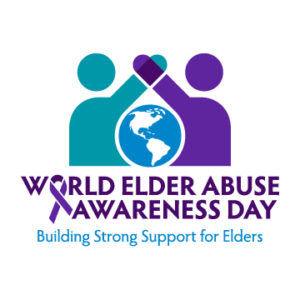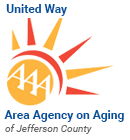 In today’s COVID climate, it seems we are more distant from our elderly family than ever in an effort to keep them safe. We have all taken the time to educate ourselves on the signs of illness, so we are able to act quickly in the event they become ill. Let’s use today as an opportunity to be sure we are educated on the signs of abuse, as well, so we’ll know what to do if we believe they have been abused.
In today’s COVID climate, it seems we are more distant from our elderly family than ever in an effort to keep them safe. We have all taken the time to educate ourselves on the signs of illness, so we are able to act quickly in the event they become ill. Let’s use today as an opportunity to be sure we are educated on the signs of abuse, as well, so we’ll know what to do if we believe they have been abused.
Warning Signs of Elder Abuse
Signs of elder abuse can be difficult to recognize, or mistaken for symptoms of dementia or frailty; or caregivers may explain them to you that way. In fact, many of the signs and symptoms of elder abuse do overlap with symptoms of mental deterioration, but that doesn’t mean you should dismiss them on the caregiver’s say-so.
Frequent arguments or tension between the caregiver and the elderly person, or changes in the elder’s personality or behavior, can be broad signals of mistreatment or neglect. If you suspect abuse but aren’t sure, you can look for clusters of the following warning signs.
Physical Abuse Warning Signs:
- Unexplained signs of injury, such as bruises, welts or scars, especially if they appear symmetrically on two sides of the body
- Broken bones, sprains or dislocations
- A report of drug overdose or an apparent failure to take medication regularly (a prescription has more remaining doses than it should)
- Broken eyeglasses or frames
- Signs of being restrained, such as rope marks on wrists
- Caregiver’s refusal to allow you to see the elder alone
Emotional Abuse Warning Signs:
- Threatening, belittling or controlling caregiver behavior
- Behavior from the elder that mimics dementia, such as rocking, sucking or mumbling to themselves
Sexual Abuse Warning Signs:
- Bruises around breasts or genitals
- Unexplained vaginal or anal bleeding
- Torn, stained, or bloody underclothing
Elder Neglect or Self-Neglect Warning Signs:
- Unusual weight loss, malnutrition, dehydration
- Untreated physical problems, such as bed sores
- Unsanitary living conditions: dirt, bugs, soiled bedding and clothes
- Being left dirty or unbathed
- Unsuitable clothing or covering for the weather
- Unsafe living conditions (no heat or running water, faulty electrical wiring or other fire hazards)
- Desertion of the elder at a public place
Financial Exploitation Warning Signs:
- Significant withdrawals from the elder’s accounts
- Sudden changes in the elder’s financial condition
- Items or cash missing from the senior’s household
- Suspicious changes in wills, power of attorney, titles and policies
- Addition of names to the senior’s signature card
- Financial activity the senior couldn’t have undertaken, such as an ATM withdrawal when the account holder is bedridden
- Unnecessary services, goods or subscriptions
Healthcare Fraud or Abuse Warning Signs:
- Duplicate billings for the same medical service or device
- Evidence of overmedication or under-medication
- Evidence of inadequate care when bills are paid in full
- Problems with the care facility, such as poorly trained, poorly paid or insufficient staff, crowding or inadequate responses to questions about care
Source: www.helpguide.org
If you feel a loved one has been a victim of elder abuse in the home setting, contact the Alabama Department of Human Resources at 1-800-458-7214.
If you feel an individual has been abused in a long term care facility, contact your Long-Term Care Ombudsman at United Way’s Area Agency on Aging. Call 1-800-AGE-LINE (1-800-243-5463).

